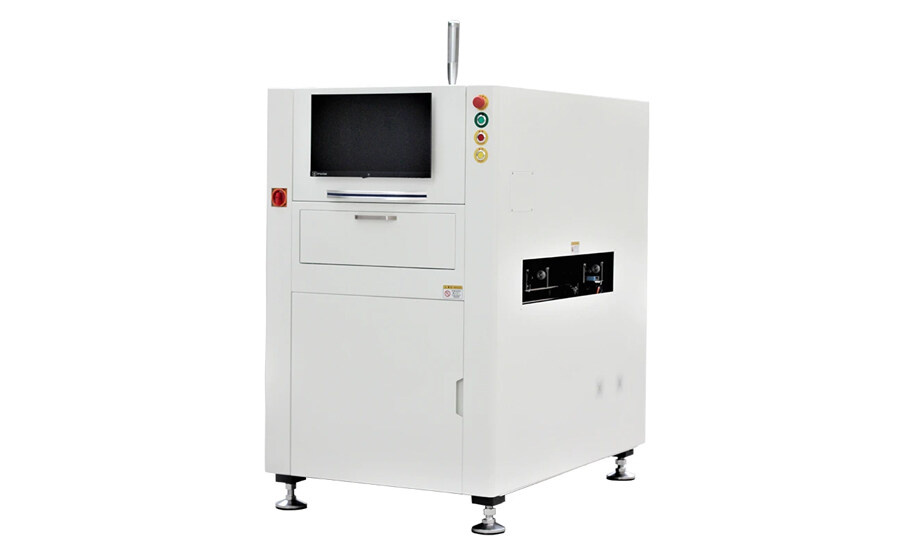Error de formato de correo electrónico
emailCannotEmpty
emailDoesExist
pwdLetterLimtTip
inconsistentPwd
pwdLetterLimtTip
inconsistentPwd


Aoi Machine with High Precision: The Future of Industrial Inspection
In the rapidly evolving world of industrial manufacturing, precision and quality control have never been more critical. As factories and production lines become increasingly automated, the demand for advanced inspection systems that can ensure product integrity and compliance has surged. Among these systems, the AOI (Automated Optical Inspection) machine with high precision stands out as a vital tool for modern manufacturing.
Understanding AOI Machines
What is an AOI Machine?
An Automated Optical Inspection (AOI) machine is a device used in the manufacturing and assembly of electronic components to visually inspect printed circuit boards (PCBs). AOI machines utilize cameras and sophisticated software algorithms to detect defects in various stages of the production process. These defects can range from surface anomalies to dimensional inaccuracies, ensuring that only high-quality products reach the market.
Evolution of AOI Technology
The technology behind AOI machines has evolved significantly over the past few decades. Early AOI systems were limited in their capabilities, primarily focusing on basic defect detection. However, advancements in imaging technology, machine learning, and computer processing power have transformed AOI machines into highly sophisticated tools capable of high precision inspection. Today, they are integral to maintaining the quality and reliability of electronic products.
The Importance of High Precision in AOI Machines
Ensuring Product Quality
In industries such as electronics, automotive, and aerospace, even the smallest defect can lead to significant issues. A high precision AOI machine can detect minute flaws that might be invisible to the naked eye or traditional inspection methods. This level of precision ensures that products meet stringent quality standards and perform reliably in their intended applications.
Reducing Manufacturing Costs
Defects in products can lead to costly recalls, warranty claims, and damage to a company's reputation. By catching defects early in the production process, high precision AOI machines help reduce the incidence of faulty products, thereby saving manufacturers considerable time and money. This proactive approach to quality control ultimately enhances overall efficiency and profitability.
Enhancing Production Efficiency
High precision AOI machines not only detect defects but also provide valuable data that can be used to optimize the manufacturing process. By analyzing defect patterns, manufacturers can identify root causes and implement corrective actions, leading to improved production efficiency and reduced downtime. This continuous feedback loop is essential for maintaining high standards of quality and efficiency.
Features of High Precision AOI Machines
Advanced Imaging Technology
One of the key features is their advanced imaging technology. These machines are equipped with high-resolution cameras and sophisticated optics that can capture detailed images of PCBs and other components. This level of detail is crucial for detecting small defects that might otherwise go unnoticed.
Machine Learning and AI
Modern AOI machines leverage machine learning and artificial intelligence (AI) to enhance their inspection capabilities. By training algorithms on large datasets of defect images, these machines can learn to recognize subtle patterns and anomalies with a high degree of accuracy. This AI-driven approach not only improves defect detection but also reduces false positives, ensuring that only genuine issues are flagged for further inspection.
Real-Time Inspection and Analysis
The AOI machines are designed to operate in real-time, providing instant feedback on the quality of inspected components. This real-time capability is essential for high-speed production lines, where any delay in defect detection can lead to significant production losses. By integrating seamlessly into the manufacturing process, AOI machines help maintain a continuous flow of quality products.
Flexibility and Adaptability
Manufacturing environments are dynamic, with frequent changes in product designs and production requirements. High precision AOI machines are designed to be flexible and adaptable, capable of handling a wide range of products and inspection criteria. This versatility ensures that manufacturers can maintain high standards of quality regardless of changes in production demands.
Applications of High Precision AOI Machines
Electronics Manufacturing
The electronics industry is one of the primary users of high precision AOI machines. From smartphones to automotive electronics, ensuring the quality and reliability of PCBs is crucial. AOI machines play a vital role in inspecting solder joints, component placement, and surface defects, ensuring that electronic devices function flawlessly.
Automotive Industry
In the automotive industry, where safety and reliability are paramount, the AOI machines are used to inspect critical components such as circuit boards and sensors. These machines help ensure that automotive electronics meet stringent quality standards, reducing the risk of malfunctions and enhancing vehicle safety.
Aerospace and Defense
The aerospace and defense industries demand the highest levels of quality and reliability. The AOI machines are used to inspect components that are subjected to extreme conditions and rigorous performance requirements. By ensuring that these components are free from defects, AOI machines contribute to the safety and success of aerospace and defense operations.
Medical Devices
In the medical device industry, the quality of electronic components can directly impact patient safety. The AOI machines are used to inspect medical electronics, ensuring that devices such as pacemakers and diagnostic equipment meet strict quality standards. This high level of scrutiny is essential for maintaining the trust and confidence of healthcare providers and patients.
Benefits of Using High Quality Industrial Online AOI Machines
Improved Product Reliability
Using high quality industrial online AOI machines ensures that products are free from defects and perform reliably in their intended applications. This reliability is particularly important in industries where product failure can have serious consequences, such as automotive, aerospace, and medical devices.
Enhanced Customer Satisfaction
By delivering defect-free products, manufacturers can enhance customer satisfaction and build a strong reputation for quality. The AOI machines play a crucial role in achieving this goal by detecting and eliminating defects before products reach the market.
Competitive Advantage
In today's competitive market, quality is a key differentiator. Manufacturers that invest in high precision AOI machines can gain a competitive advantage by consistently delivering high-quality products. This commitment to quality can help attract new customers, retain existing ones, and drive business growth.
Challenges and Considerations
Initial Investment
One of the primary challenges associated with high precision AOI machines is the initial investment cost. These machines can be expensive, and manufacturers must weigh the benefits of improved quality and efficiency against the upfront costs. However, the long-term savings and enhanced product quality often justify the investment.
Integration with Existing Systems
Integrating high precision AOI machines into existing manufacturing processes can be complex. Manufacturers must ensure that these machines are compatible with their production lines and can operate seamlessly with other inspection and quality control systems. Proper planning and implementation are essential for successful integration.
Training and Expertise
Operating high precision AOI machines requires specialized knowledge and expertise. Manufacturers must invest in training their personnel to ensure that they can effectively operate and maintain these machines. Continuous training and skill development are essential to keep up with advancements in AOI technology.
Future Trends in AOI Technology
Continued Advancements in AI and Machine Learning
The integration of AI and machine learning into AOI technology is expected to continue, leading to even more sophisticated and accurate inspection capabilities. These advancements will enable AOI machines to detect increasingly subtle defects and provide more detailed analysis and feedback.
Integration with Industry 4.0
As the manufacturing industry moves towards Industry 4.0, the AOI machines will play a critical role in the implementation of smart factories. These machines will be integrated with other advanced technologies such as IoT (Internet of Things), robotics, and data analytics to create highly efficient and automated production environments.
Miniaturization and Portability
Future AOI machines are likely to become smaller and more portable, making them easier to integrate into various production environments. This miniaturization will also enable the inspection of increasingly smaller components, keeping pace with trends in miniaturized electronics and other products.
Enhanced User Interfaces
The user interfaces of AOI machines are expected to become more intuitive and user-friendly, reducing the learning curve and making it easier for operators to interact with the machines. Enhanced interfaces will improve the overall user experience and increase the efficiency of inspection processes.
Conclusion
The AOI machine with high precision is an indispensable tool in modern manufacturing, offering unparalleled accuracy and efficiency in defect detection. By ensuring product quality, reducing manufacturing costs, and enhancing production efficiency, these machines play a crucial role in maintaining the competitiveness and reputation of manufacturers across various industries.
As technology continues to advance, the capabilities of high precision AOI machines will only improve, further solidifying their importance in the industrial landscape. Manufacturers that invest in these cutting-edge inspection systems can expect to reap significant benefits, from improved product reliability to enhanced customer satisfaction and a stronger competitive edge.

